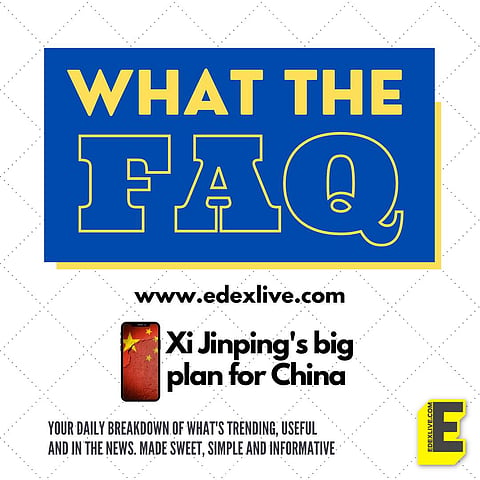

The Chinese President is the General Secretary of the Chinese Communist Party (CCP) and Chairman of the Central Military Commission (CMC) since 2012, and President of the People's Republic of China since 2013. These three key positions in the administration give him an iron hold over political affairs in the country, despite the constitution of China reducing the powers of the President to that of a figurehead. But Xi Jinping has played the long game to ensure that the country is well and truly under his rule, and for a long time to come.
Why is the political brass meeting?
China is a socialist authoritarian state, with the CCP as the sole ruling party since Mao Zedong established his hegemony back in 1945. The party conducts seven plenaries each year to discuss policy and other pre-decided matters. This is the sixth plenary this year, and it is an all-important one, at least on paper. The sixth plenary before a National Congress meet of the CCP, discusses the leadership and positions within the party, effectively setting the tone for the Congress, which meets only once in five years.
What does the National Congress do?
Think of China's National Congress as a methodical cabinet reshuffle/appointment balled together. The meeting appraises the members in the Central Committee, which comprises the top leaders at various levels of administration. In effect, it is going to clear the continuum of Xi Jinping's tenure as the party's General Secretary and the President of the country, and we know this because of the sixth plenary, where Xi Jinping is set to release what is referred to as a "historic resolution."
Why is this year's meeting important?
Xi Jinping took charge as President in 2013, taking over from Hu Jintao. With this year's sixth plenary, the Chinese premier is set to join Mao and Deng Xiaoping, as the only ones to pass a "historic resolution." The resolution is basically the blueprint set by the leader to establish his methods of administration. The top brass of the party signs off on this document in principle, giving a sense of concurrence between the leader and other members of the party. While Xi removed the limit on terms for the President in China in 2018, this meeting will ensure that the people believe he has the backing of the top officials in the government. This is crucial because there are no national-level elections in China; it's a hierarchical system where people vote only for local representatives, who then elect the officials directly above them, and so on. The National Congress elects the President.
How is Xi Jinping's historic resolution different?
The resolution will be made public only after the plenum concludes. However, speculation is rife that Xi Jinping is a hark back to the personality cult leadership strategy of Mao Zedong. He has taken a hardline stance against the billionaires of China, including Jack Ma, and has also pursued a foreign policy that includes a complete annexation of Taiwan. He has also set up, and made himself the chair of new committees within the CCP, including the National Security Commission. According to a report by cnbctv18.com, he is also expected to brush aside the failures of the administration, and attribute the success of the nation to his rule. This is a bit of a departure from the changes that Deng Xiaoping attempted to make, in order to break the dictator-esque hold that Mao had created over the country.
